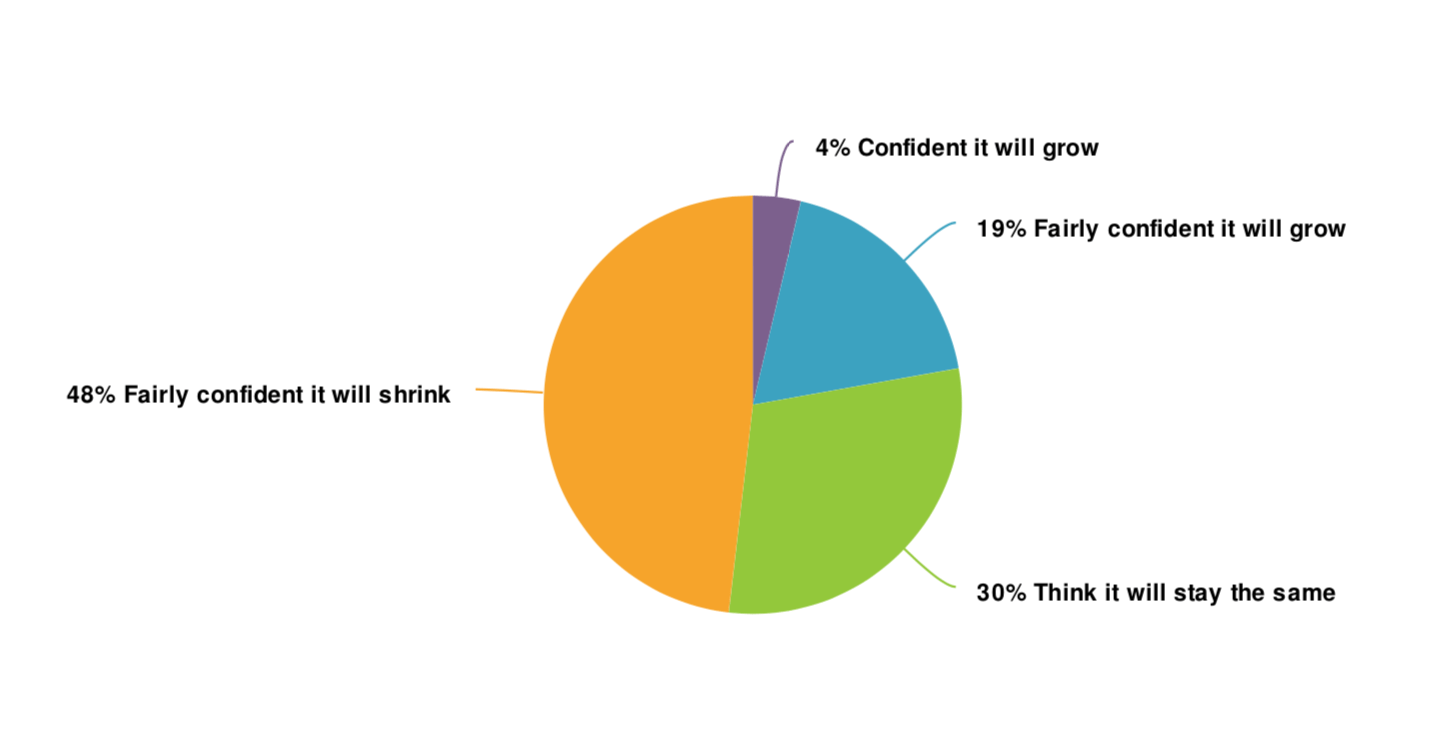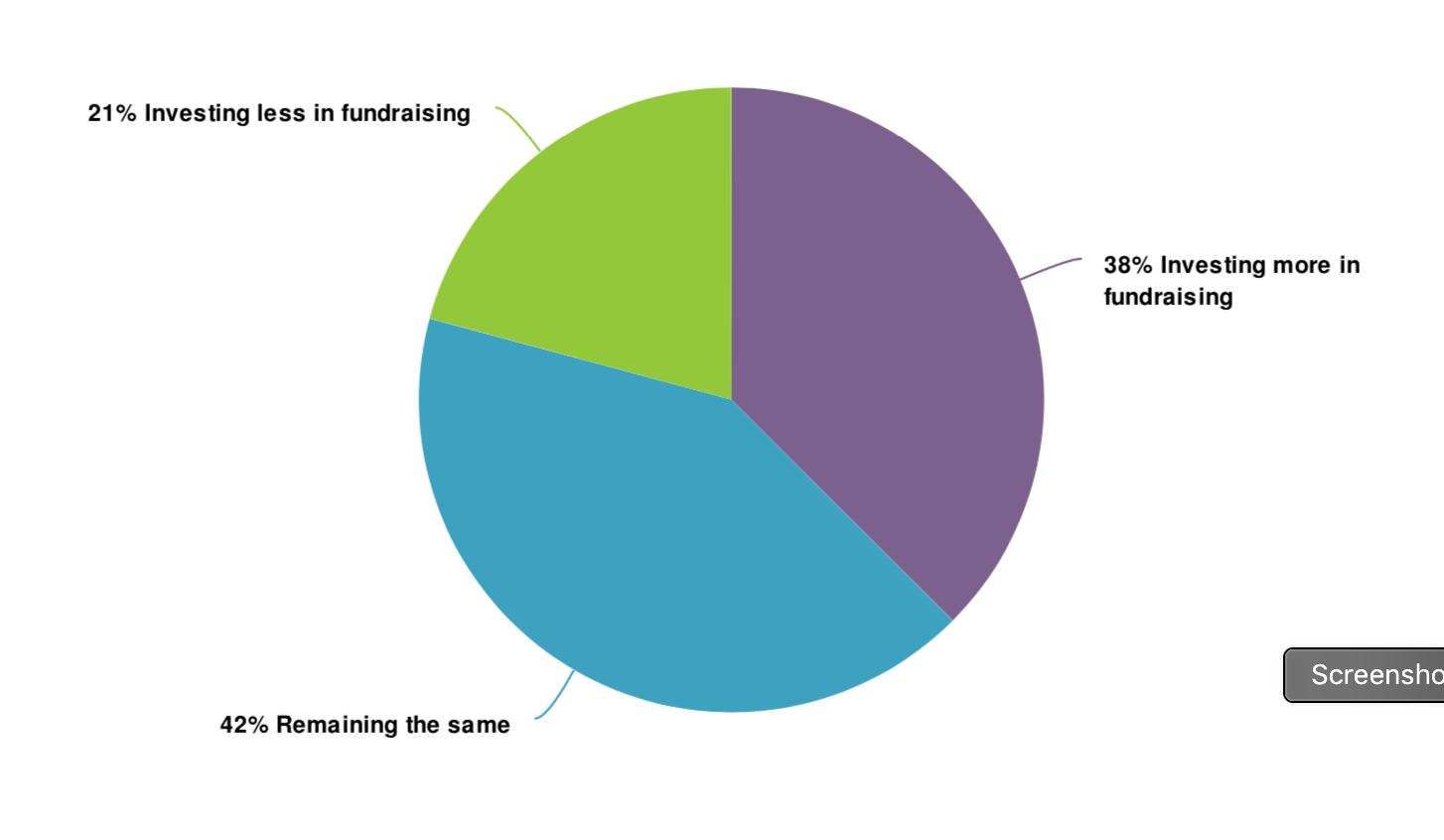What does the future hold for fundraising in the UK?
As the months pass by and lockdown – temporarily? – loosens here in the UK, many fundraisers are uncertain about their ability to understand the future fundraising landscape. We can see the knock-on effects of the pandemic on our life and work now. But will how long will the current situation continue? What will be the new normal? All of which means we are carrying many unknowns into the rest of the year and beyond.
Yes – we are spending lots of energy convening online to learn from each other about what went well over the last few months of fundraising in a crisis. Hindsight may be a wonderful thing, but who would say ‘no’ to a bit of foresight right now?
At =mc consulting we don’t have a crystal ball. But we do have access to 27 of the smartest fundraising experts in the United Kingdom. Responding to an invite to share their opinion, they included the directors of development of some of the largest humanitarian, educational, cultural, and social service agencies in the UK, as well as a sprinkling, but only a sprinkling, of the most experienced consultants. Using the Delphic Panel Approach, we asked this team of industry big brains to consider some key future questions and offer their opinion on likely outcomes based on their experience and insight. We asked them to focus on the next 3-5 years when considering their answers.
By the way we also undertook a similar process in the US – you can find out about that here. You might also be interested to know we are currently running similar process in Holland with the far-sighted Reinier Spruit.
Our goal was to help create a clearer picture of what the future might hold in the UK, based on our senior figures’ opinions (albeit expert opinions). We offer the UK results below for information and insight. Feel free to share them more widely. Feel free to comment or criticise. Feel free to add your opinion to our parallel survey.
Clues from other research
Before diving into the results of our Delphic survey, we explored the results of Blackbaud & the Institute of Fundraising’s “Status of UK Fundraising” report, hot off the press, published just last week. The research covers responses from 2,000 fundraising professions and exposes some important considerations:
● 66% of those surveyed were confident that their organisation would financially recover from COVID-19
● 27% reported a decline in overall voluntary income and 40% reported an increase in income
● Of those with growing incomes, 61% said that hiring newly skilled staff was the main contributor to their financial growth
To see the full results look here.
These results are not as dire as we may have expected – though the coronavirus storm is far from over. And notice that some agencies are doing better. So how do these views compare and contrast with that of our experts?
Predictions for 2020 and beyond
As we mentioned above we created a selected group of 25 peers balanced to ensure representation across sector, all with significant track records of success and all able to take a national view. All completed the survey in July 2020. The results were remarkably consistent across the individuals and the different industries we surveyed, with only a few outliers.
Our experts are pragmatic about the next three years. Of those surveyed, 23% were reasonably confident that philanthropy overall would grow during the next three years.
However, the rest of those surveyed said they think it will stay the same, or were fairly confident that it would shrink. This is almost the reverse of our US-based results where experts were more bullish.
When we drilled down into % expectations of a shrinking market among our cohort this reduction in the market only ranged between 5-10%. For the minority – 22% – who foresaw a growing market, the average increase expectation was much higher – 15% – with one bullish fundraising expert predicting a 25% growth.
Surprised. Well there is past evidence of what happens during and after a crisis. (See some excellent work on this by the clever Mark Phillips).
Overall past evidence suggests charitable contributions in recessions tend to decrease and stay there for a little while. However, the long-term data shows us even the steepest recent recessions tend to recover in five or fewer years and that generally speaking, in the UK market at least, giving levels stay pretty consistent across the decade. The fact we still, longer term, struggling to grow the UK fundraising market as a proportion of GDP is a whole different challenge.
Advertisement
What were the investment predictions?
We asked our top team for their key investment predictions.
● The majority (63%) are retaining or investing in more staff. This resonates well with the Blackbaud/IoF findings – an investment in people leads to fundraising growth – through both good and challenging times.
● Alongside this sustained or increased investment in people, 80% of our experts agreed that maintaining or spending more in fundraising was the way forward. Sadly, this advice doesn’t appear to be widely followed as firing follows furlough in the sector.
● Regardless of the near-term impact of COVID, veteran fundraisers anticipate organisations adding more accelerant to the fundraising fire. If your board or senior managers recommend cutting investment or reducing development staff, our expert panel suggests the smart money is on the opposite.
Where will growth come from?
Another part of the survey explored where specifically growth would come from – in terms of channels and sources. Here’s a headline summary.
Individuals remain essential but reduce
● There was pessimism about the scale of regular giving in the future. 54% of our cohort thought individual giving would shrink, with only 23% thinking it would grow and a
similar number thinking it would stay static. (This contrasts sharply with the assessment of our US respondents who were more hopeful on growth. )
● Where respondents did overwhelmingly agree was that any growth in future individual fundraising revenues would come from very specific areas. Our senior fundraisers anticipate significant gains from bequests/legacies (77% expecting growth) and major donors (81% expecting growth)
● Many of our experts predicted an increase in one-off donations perhaps anticipating that supporters are reluctant to make longer term regular commitments. Is this partly borne out by our response to emergency appeals (for example, Covid Yemen, and Black Lives Matter), and is this changing our giving habits? Only time will tell…
Decline in community and corporate
● Half of respondents predicted a drop in corporate giving, which is very much in line with the trends of the last decade (Corporate giving has been in decline in cash terms in the UK for the last 10+ years)
● Our experts also predicted a decline in community/event fundraising – although many shared their opinions on the growth of online giving being connected to digital experiences and virtual events. So is this income just disguised under the new banner of ‘digital’?
Foundations provide the foundation
Foundations have done a huge amount in recent months to support the sector, especially in terms of grant flexibility and by dipping into reserves. But this approach is unlikely to be sustainable. 50% thought foundation income would remain then same, with 31% believing it would grow. The balance saw a potential to shrink – though this may depend to stock market values.
Drive acquisition with digital
In terms of investment in specific fundraising acquisition channels:
● Nearly all of our senior thinkers thought that their organisations or clients would be spending more on digital. (No one suggested that they would be spending less).
● Other growth areas identified by the survey include DM, DRTV, and a resurgence in telemarketing.
Split views on earned income
Earned income forms a major part of some social service and education-led charities.
● Here the experts were split with 46% saying earned income as part of the charity portfolio would grow and 46% saying the opposite
Print in the past
● The one channel most clearly in retreat in everyone’s opinion is – no surprise – print advertising. This probably connects to the overall decline in consumer focused print media especially newspapers.
Some next steps… and your chance to future gaze
A survey is just a survey. And opinions, even those offered by super smart and experienced people, are only opinions on what might be… So we’re about to undertake a complementary phase of this work creating more detailed UK scenarios to aid planning. We’ll be sharing what we learn in the next few months. If you want to know more about how scenarios work have a look here.
And if you want to keep in touch on the longer term scenarios work email b.****@ma**************.uk
We’d also love to know your opinion on growth opportunities. If you’d like to add your opinion, we’re looking for up to 100 UK respondents to participate in the same survey taken by our experts . If you reckon you’d like to add your view, you can access the survey. As a bonus, if you share your views, you’ll gain access to the detailed outputs, which may be useful for your own peace of mind or to share with your board or senior colleagues a part of your ‘investing in the future’ plan.
Bernard Ross and Dana Segal at =mc consulting








